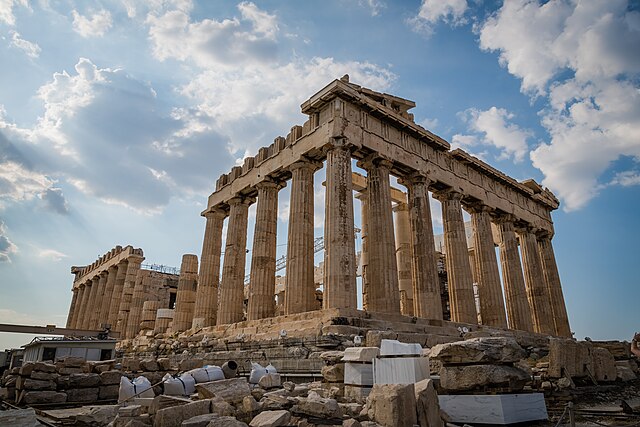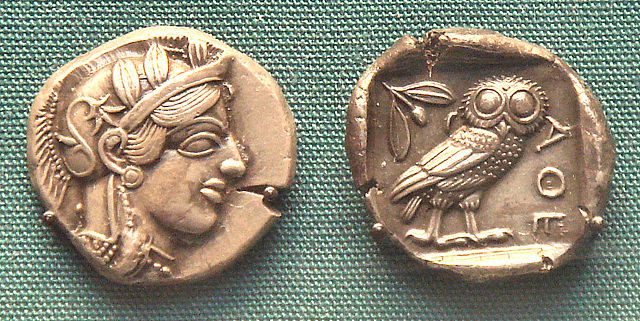Ancient Greece was a northeastern Mediterranean civilization, existing from the Greek Dark Ages of the 12th–9th centuries BC to the end of classical antiquity, that comprised a loose collection of culturally and linguistically related city-states and other territories. Most of these regions were officially unified only once, for 13 years, under Alexander the Great's empire from 336 to 323 BC. In Western history, the era of classical antiquity was immediately followed by the Early Middle Ages and the Byzantine period.
The Parthenon, a temple dedicated to Athena, located on the Acropolis in Athens, is one of the most representative symbols of the culture and sophistication of the ancient Greeks.
The Victorious Youth (c. 310 BC) is a rare, water-preserved bronze sculpture from ancient Greece.
Dipylon Vase of the late Geometric period, or the beginning of the Archaic period, c. 750 BC.
Early Athenian coin, depicting the head of Athena on the obverse and her owl on the reverse – 5th century BC.
Greek is an independent branch of the Indo-European family of languages, native to Greece, Cyprus, Italy, southern Albania, and other regions of the Balkans, the Black Sea coast, Asia Minor, and the Eastern Mediterranean. It has the longest documented history of any Indo-European language, spanning at least 3,400 years of written records. Its writing system is the Greek alphabet, which has been used for approximately 2,800 years; previously, Greek was recorded in writing systems such as Linear B and the Cypriot syllabary. The alphabet arose from the Phoenician script and was in turn the basis of the Latin, Cyrillic, Coptic, Gothic, and many other writing systems.
Idealised portrayal of the author Homer
Greek inscription in Cypriot syllabic script






